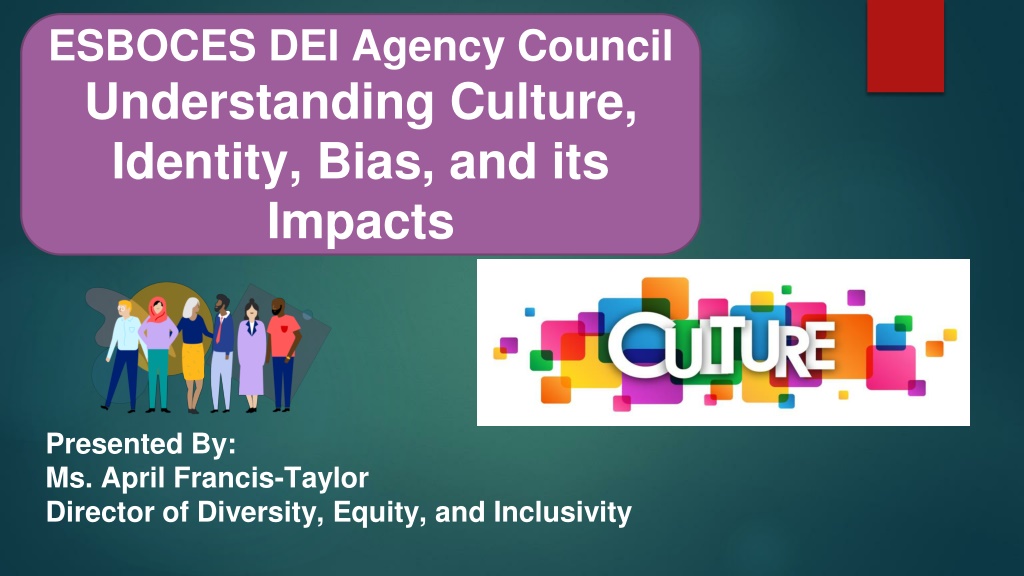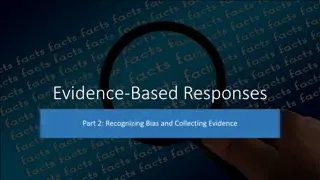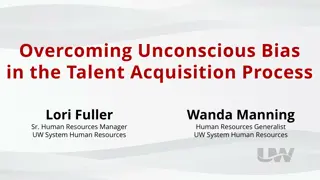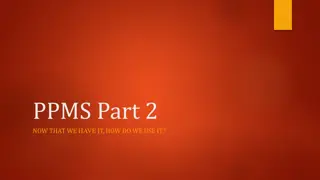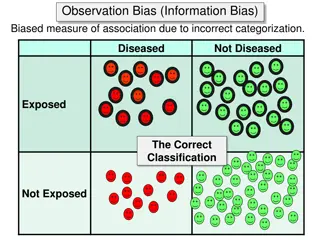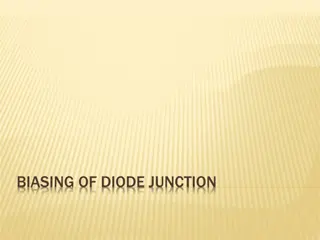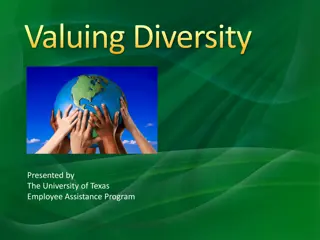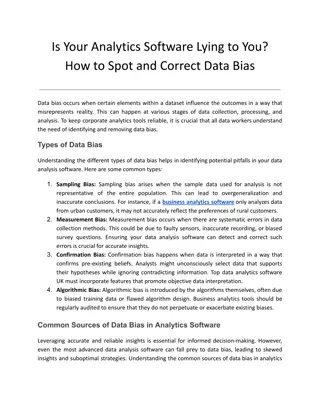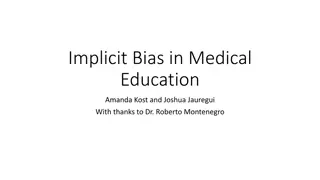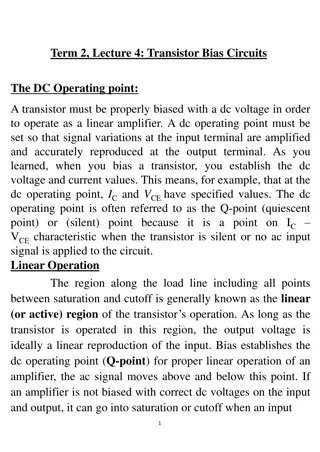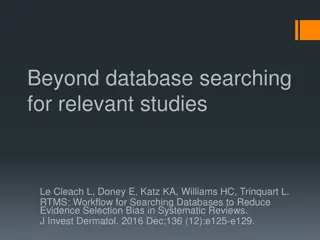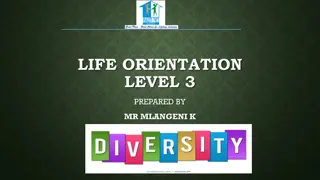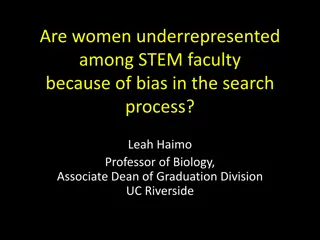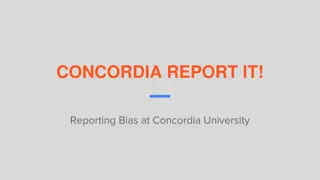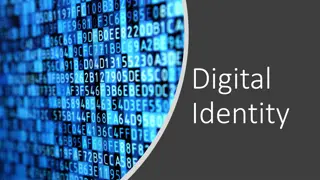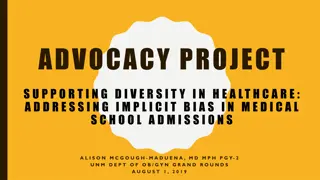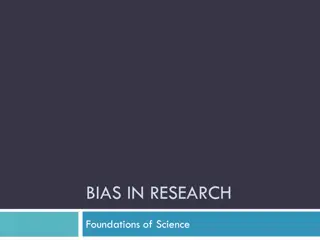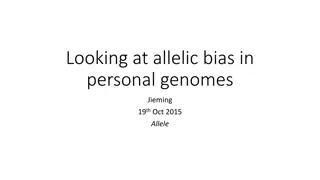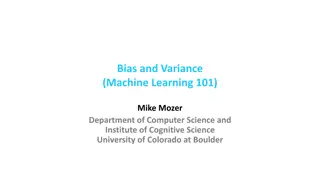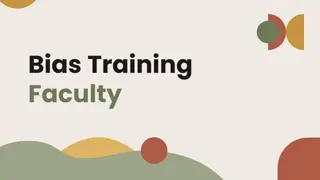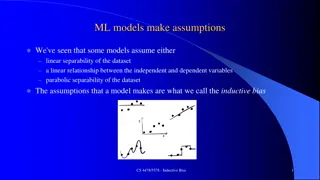Understanding Culture, Identity, Bias, and Diversity in the Workplace
This presentation highlights the importance of understanding culture, identity, bias, and their impacts in the workplace. Through courageous conversations and diversity training, participants learn to unpack implicit bias, combat bias, and develop teamwork skills. The session emphasizes staying engaged, experiencing discomfort, and speaking one's truth while discussing emotional, intellectual, moral, and social responses to difficult issues.
- Workplace Diversity
- Cultural Understanding
- Bias Awareness
- Courageous Conversations
- Inclusivity Training
Download Presentation

Please find below an Image/Link to download the presentation.
The content on the website is provided AS IS for your information and personal use only. It may not be sold, licensed, or shared on other websites without obtaining consent from the author. Download presentation by click this link. If you encounter any issues during the download, it is possible that the publisher has removed the file from their server.
E N D
Presentation Transcript
ESBOCES DEI Agency Council Understanding Culture, Identity, Bias, and its Impacts Presented By: Ms. April Francis-Taylor Director of Diversity, Equity, and Inclusivity
Setting Virtual Norms Protocols and Strategies to Support Courageous Conversations in Virtual Meetings: 1. Please use the rename function and share your full name and building 2. Please mute when you are not speaking 3. When others are speaking, use the chat room to share any thoughts 4. Stay engaged and be present as much as possible using your camera/video option 5. Share your appreciation for colleagues who BRAVE through our conversation As always, let s be kind, courteous, and civil in our conversations.
Diversity Training: Understanding Culture, Identity, and Bias Today s Objectives Developing norms and protocols using the Courageous Conversations model Unpacking culture, identity, implicit bias, microaggressions, and their impacts Learning strategies to combat bias Develop teamwork skills
Dont Be Afraid To Have Courageous Conversation Stay Engaged Experience Discomfort Speak Your Truth Expect and Accept Non Closure In the chat box, please list a norm you need to have a courageous conversation.
Courageous Conversation Compass The 4 Points are: EMOTIONAL: responding to information through feelings (when difficult issues strike us at a physical level and causes sensations such as anger, sadness, joy, or embarrassment). INTELLECTUAL: response to a difficult issue or information may be to personally disconnect or to search for more information or data. Our intellectual response is often verbal and based in our thinking. MORAL: responding from a deep-seated belief that relates to difficult issues information or event. Moral views are from the gut and may not be verbally articulated. SOCIAL: connecting and responding to difficult topics and information through actions and behaviors. In the chat box: please write where you presently are in this moment.
Diversity, Equity, & Inclusivity Diversity- is the presence of difference within a giving setting. The differences typically refer to identity like race and gender, and sometimes ethnicity, religion, nationality, or sexual orientation. A person isn t diverse. They re unique. They can bring diversity to a group though. You re not looking for a diverse candidate. Diversity is about a collective or a group. Inclusion- has to do with people with different identities feeling and/or being valued, leveraged, and welcomed within a given setting (whether that s a team, workplace, or industry): Diversity is being asked to the party. Inclusion is being asked to dance. Equity- is an approach that ensures everyone has access to the same opportunities. Equity recognizes that we don t all start from the same place because advantages and barriers exist. It s a process that acknowledges uneven starting places and seeks to correct the imbalance.
How can we define Culture? The New York State Education Department understands culture as the multiple components of one s identity, including but not limited to: race, economic background, gender, language, sexual orientation, nationality, religion, and ability. Culture far transcends practices such as cuisines, art, music, and celebrations to also include ways of thinking, values, and forms of expression .
Self-Reflection and Share (breakout rooms) How does your culture impact your identity, personality?
Microaggressions Microaggressions- are the everyday verbal, nonverbal, and environmental slights, snubs, or insults, whether intentional or unintentional, which communicate negative messages to persons based solely on group membership.
Impact of Bias/Stereotypes/Microaggressions For the person targeted, the impact of the biased action is what really matters, not necessarily the intent of the aggressor. While It is important to understand the many complexities of bias, it is more important to consider the impacts of bias, whether implicit or explicit, and microaggressions on targets or others in that identity group.
Mid-point check-in In break out rooms, share: 1. How have bias or microaggressions impacted your life? 1. How did this share of these definitions connect or extend your previous thinking?
Get Comfortable Being Uncomfortable
How can YOU continue to be a domino against bias and microaggressions?
Ways we can respond to bias and microaggressions 1. Inquire, Paraphrase, Reflect, Revisit 2. Separate the person from the action or behavior. Instead of saying you re racist try saying that could be perceived as a racist remark. 3. Avoid starting questions with Why - it puts people on the defense. Instead try how and what made you 4. Try to avoid using the pronoun you too often. Use I statements describing the impact on you instead or refer to the action indirectly (i.e. when ____was said, or when ____happened) 5. Be mindful of your tone, body language, etc the message has to be said with respect.
REFLECTING How how has the workshop pushed your thinking? What is one concept you will commit to sharing with your others after today? HW: Harvard Implicit Bias Exam Next Workshop: Developing Anti- racist Mindsets for Action
